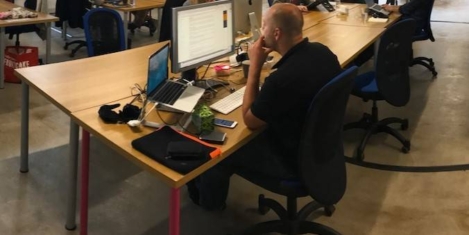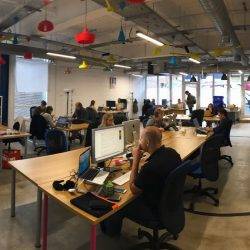To provide the best experiences, we use technologies like cookies to store and/or access device information. Consenting to these technologies will allow us to process data such as browsing behaviour or unique IDs on this site. Not consenting or withdrawing consent, may adversely affect certain features and functions.
The technical storage or access is strictly necessary for the legitimate purpose of enabling the use of a specific service explicitly requested by the subscriber or user, or for the sole purpose of carrying out the transmission of a communication over an electronic communications network.
The technical storage or access is necessary for the legitimate purpose of storing preferences that are not requested by the subscriber or user.
The technical storage or access that is used exclusively for statistical purposes.
The technical storage or access that is used exclusively for anonymous statistical purposes. Without a subpoena, voluntary compliance on the part of your Internet Service Provider, or additional records from a third party, information stored or retrieved for this purpose alone cannot usually be used to identify you.
The technical storage or access is required to create user profiles to send advertising, or to track the user on a website or across several websites for similar marketing purposes.
 Freelancers expect government policy to drive their businesses and the economy into decline over the next year, a report from IPSE (the Association of Independent Professionals and the Self-Employed) claims. This quarter, amid widespread speculation about Budget announcements that would harm the self-employed, freelancers’ confidence in their annual business performance dropped nine points, sliding into negative territory. Their confidence in the wider economy – which was already in deep negative territory – fell another two points to near-record lows.
Freelancers expect government policy to drive their businesses and the economy into decline over the next year, a report from IPSE (the Association of Independent Professionals and the Self-Employed) claims. This quarter, amid widespread speculation about Budget announcements that would harm the self-employed, freelancers’ confidence in their annual business performance dropped nine points, sliding into negative territory. Their confidence in the wider economy – which was already in deep negative territory – fell another two points to near-record lows.






























April 30, 2025
Co-working spaces bring a whole range of benefits for employees and communities
by Mariachiara Barzotto • Comment, Flexible working, Property, Workplace design